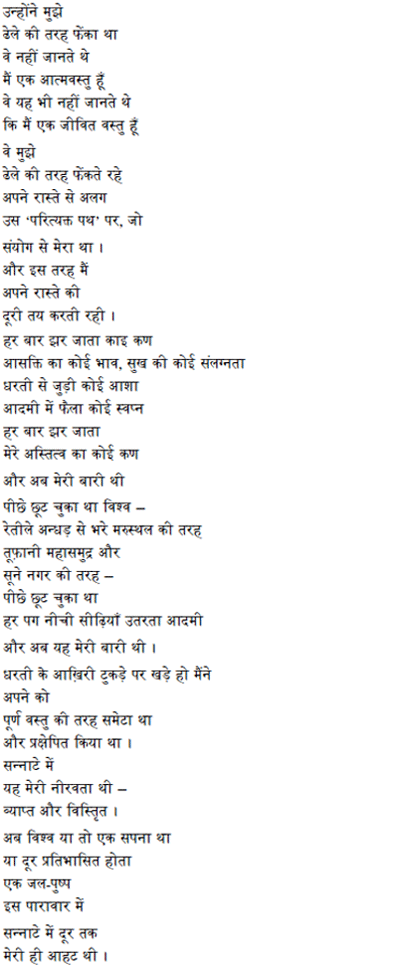

Deep in the Stillness
This deceptively simple translation – like all deceptively simple poems – took a considerable amount of time and care to produce. If you compare our final workshop version to the literal version supplied by Lucy Rosenstein, you’ll see that not a great deal appears to have changed. And yet it’s those tiny details we altered that – as always – make all the difference.
What I hope we’ve managed to do is to bring Amrita Bharati’s remarkable, quiet and powerful vision into focus. The six lines of the opening stanza (there are only two), although they’re never repeated, have the quality of a refrain: they define the poem, its themes and its objectives. You know from the very fact that the mere ‘clod of earth’ is actually speaking to you that ‘he’ has failed: despite being discarded and despised, she is ‘alive’ and she is ‘a thing with soul’ – the very uncomfortableness of that phrasing a clear indictment of ‘him’, revealing the depth of his ignorance and contempt in his mistreatment – and misjudgement – of her.
What’s remakable about this poem is the way in which the speaker transfigures ‘his’ abuse into her salvation. He repeatedly throws her away, and yet, as a result ‘I kept travelling / along my own way’, until at the end of the poem she is able to inhabit ‘my own silence / pervasive and expansive.’
Sarah Maguire
